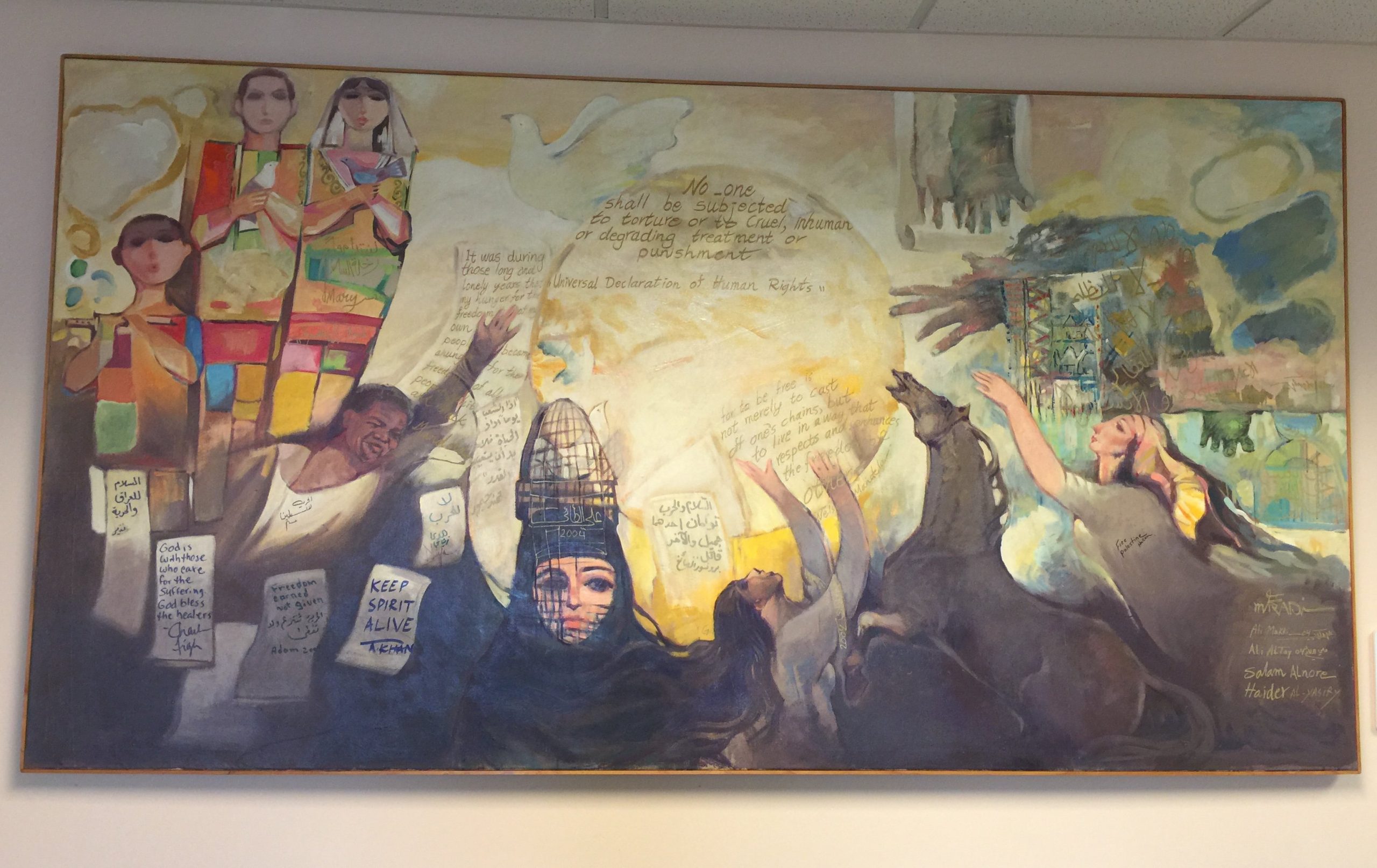While the United States of America wrestles with the politics and policies of immigration and refugees, Belt presents nine moving essays about refugees and immigrants living throughout the Rust Belt …
1.) Cleveland’s Little Iraq
In the company of my new friends in Cleveland, though, I discovered how many stereotypes I’d held of my own people. My notions of Iraqis were based on a single community, most of whom had immigrated in the 1970s, and much of what I’d observed had been generational. These women, however, were my peers, with similar interests and tastes. They dreamt of HGTV homes, arrived places on time dressed in the latest styles, and even if they didn’t always wear their seatbelts, at least they believed they should.
2.) In Columbus, Somalis Live Under Suspicion
At a meeting for Somali students attending Ohio State, opinions were mixed on whether to go back. Those who recently visited Somalia described it as more fifth-world than third. Still, several expressed a desire to use their medical or engineering degrees to help rebuild the country. Intesar Ismal, who works at Grant Medical Center, also wants to do her part, but from Columbus. “I feel way more American now than Somali,” she says. “We’re living the American dream.”
3.) Farmers Without Borders: In Cleveland, Urban Agriculture Seeds Refugee Assimilation
“Some people absolutely still have these perceptions. I am still newer to this world, but what I see on the front side and based on my own experiences, is refugees still get blurred with immigration so the national conversation around immigrants and others coming in accessing our system usually comes at the cost of ‘they are taking our jobs, they are taking our benefits’ Many people think they are pulling us down, and what you find is the exact opposite,” explains Hamm. “With refugees, within two years, only eight percent are accessing public systems like food stamps, benefits, those kind of things. They are employed, supporting their families. They are active participants in the community.”
4.) The Chatpattey Room: Refugees Creating a Home — And A Business — In The Rust Belt
While refugees can choose where they would like to be relocated, many don’t have enough knowledge about the United States (or other countries) to be able to make an educated choice. Those that don’t know how to find family members already in the States have to go in blind. Families can end up scattered, sometimes across states or even across continents. The recent surge of Bhutanese refugees into Akron is caused both people in the camps coming to join their families, as well as those from other states relocating to reunite with their loved ones.
5.) A Helping Hand, From One Refugee To Another
“I don’t remember much, I was very young.” Bijedic, now 33, says. “I knew there was grenades, gunshots, all that. We used to collect bullets. We used to collect bullets for fun.”
6.) Refugees In Michigan: The Story Of Loss, Belonging And America
Sometimes conflicts and the suffering that they bring force people to leave their homes in search of a place where they can survive. It’s not easy for refugees to leave everything behind: their house, a secure job, a way of life and a family. But they often choose to do that because existence is more important than attachments.
7.) Hamtramck: Where Diversity Rules
Forty-four percent of Hamtramck residents were not born in the U.S., according to the 2010 U.S. Census, making it Michigan’s most internationally diverse city. “You find out that even though they have different religions, different cultures, they’re not different from you, they’re the same people.”
8.) “This Is Not America. This Is Dearborn.”
“It’s hard to do this in Arabic countries. This country really builds you up. You may not be great but you keep going.”
9.) Arabic And English In Dearborn: Language Is More Than Just A Skill
“Because there are a lot of Arabs, it helps with language and it doesn’t help with language,” he said. “Sometimes you have to speak English and your English language skills get stronger, it’s better. Sometimes you’re in a store, and you’re working, and there’s Arabs and they’re going to speak Arabic. And this can set you back; it won’t help you learn the language very much.”
__
We publish essays like these thanks to the generosity of our members.






